Positive Psychology & Film: Women’s Careers
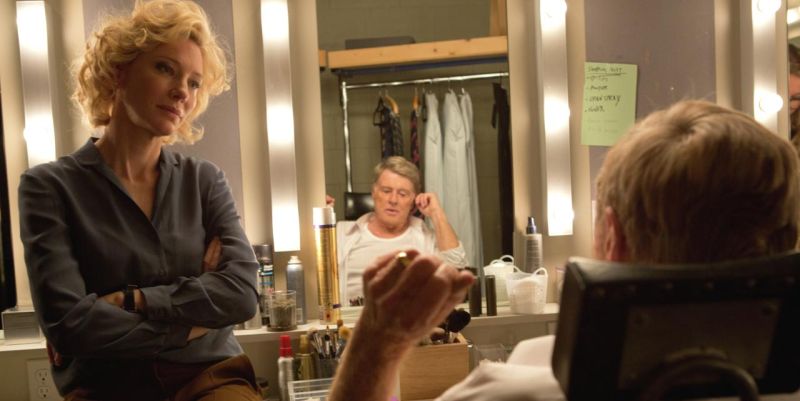
Laurie Agard studied Psychology and Writing in graduate school after…
“I invented my life because I wasn’t pleased with it.” – Coco in Coco Before Chanel
Work as a Calling
The concept of “work as a calling” is a prominent construct in the field of positive psychology. Psychologists and film buffs Niemiec and Wedding masterfully relate it back to the world of cinema. Protagonists in “work as a calling” films believe that their work expresses who they are. Work isn’t seen simply as a job or a career with a focus on advancement, but rather the protagonist views their work as something that has a socially useful and fulfilling purpose.
Only 12 percent of protagonists in top-grossing films over the past decade have been women and very few of them had career or work as a calling as a theme. This means men and women have been watching films where male characters drive the storytelling plots which are often driven by men’s careers, and everything else centers around these ideas.
Perpetrating this stereotype is harmful because studies show there are large variations in confidence level and career choices between genders, and stereotypes not only influence career aspirations but also ability standards, self-assessments, and people’s actual performance. When women don’t understand this and make choices based on cultural beliefs that don’t accurately reflect ability, stereotypes have huge implications on their lives.
According to Stanford sociology professor, Shelley Correll, there are two major things that lead to lower career aspirations: “If you expose someone to a negative stereotype about a person it actually lowers their task performance” and “Negative stereotypes lead individuals to judge their own performance by a harsher standard.” This begins very early in one’s life.
Research now shows that stereotypes actually directly affect the brain system. When parts of the brain are emotionally activated when someone is told they aren’t good at something, the part of the brain that would normally be used, for example, to solve a math problem isn’t activated as much and this directly affects their math ability. Further, studies show that because of how the brain works, women who, for example, have the most mathematical ability would be affected the most by this.
Psychologists have also researched a phenomena known as stereotype threat, which demonstrates that people perform even worse if they are afraid of proving a stereotype associated with their group to be accurate. Continuing with the math example, test results revealed that women did worse when they believed they were taking a math test and better when they thought the test they were taking was just another test. The implications are widespread for how this may be affecting women in our culture.
It has also been determined that stereotypes not only hinder ability, they inaccurately influence people’s judgments about ability. Even preschool girls in the United States show different beliefs about career differences between men and women regardless of whether or not girls are demonstrating the same abilities as boys.
In light of this, it’s interesting to note that research also indicates that between 2006 to 2009, for example, not a single woman was depicted in G-rated family film as being a doctor, scientist, judge, lawyer, business leader, or politician.
Studies show that as children become teenagers they begin making career choices that are in line with traditional gender roles because they believe certain things about their own competence and incompetence and self-efficacy and lack of self-efficacy. From a very young age, stereotypes encourage men and women differently, and because of this men and women don’t often receive the same training, and they still don’t have the same opportunities in many career fields.
A prime example of this is film directing. Data recently released by the Director’s Guild of America and the USC/Annenberg Center for Media revealed that though women graduate from film schools at parity with men, in 2015, only 5.4% of narrative feature films were directed by women. The statistics for women directors in the United States has remained virtually unchanged over the last twenty years.
Research also reveals that in every occupational category in the United States, men are paid more money. The biggest point of difference in salary happens right when a person is hired and then the initial salary deficit is never made up. Often women are funneled into lower paying jobs than men right at the beginning of their careers. Many women report feeling like they have to work twice as hard to be considered half as good.
Additionally, if women are hired into a predominantly male work environment, they often feel a lot of pressure to assimilate into a masculine culture. Many women feel they aren’t welcome in traditionally male-dominated organizational cultures. On the other hand, women are often “welcomed” into jobs at the bottom of the hierarchy.
On the positive side, there is also great news about stereotypes.
Research indicates that for the long term the affects of stereotypes are situational. Studies are showing that what really affects people is the beliefs that are prominent in their local environment. This means that if local environments can be changed, the negative affects of these stereotypes can be changed, too. By changing beliefs in your local environments, your well-being can be improved.
As you watch the following films try and spot character strengths and observe how watching films with career as a calling themes affects your thoughts about work. It might also be helpful to look for stereotypes and observe your reactions to the characters’ strategies in life.
Work as a Calling Films:
Coco Before Chanel (2009)
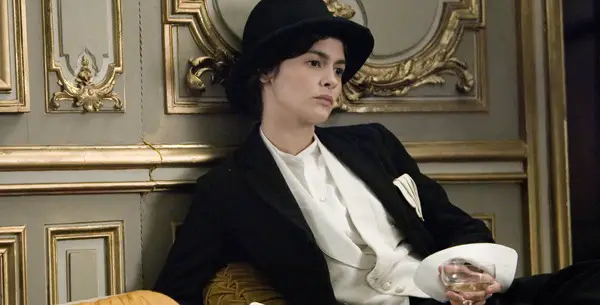
Character Strengths and Virtues: honesty, wisdom, creativity, bravery.
Themes: orphan, fashion design, finding passion and purpose in work.
Julie & Julia (2009)
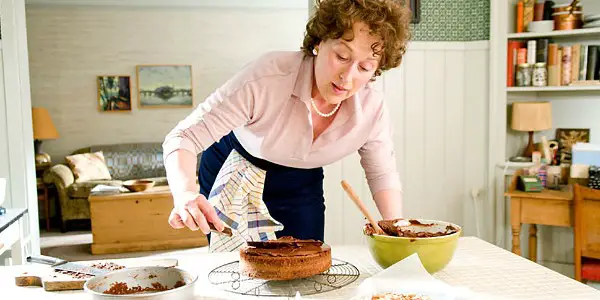
Character Strengths and Virtues: love of learning, zest.
Themes: cooking, blogging, goal-setting, finding passion and purpose in work.
Freedom Writers (2007)
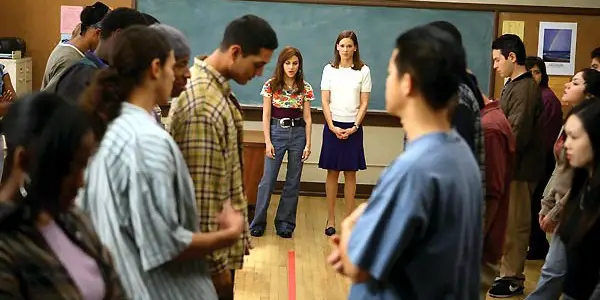
Character Strengths and Virtues: wisdom, creativity, hope, tolerance, love of learning.
Themes: creative high school teacher, inner-city youth.
Additional Positive Psychology Films Featuring True Stories of Women and their Careers
Amelia (2009)

Character Strengths and Virtues: courage, valor, hope.
Themes: the bravery of Amelia Earhart, the first woman to cross the Atlantic ocean.
Mona Lisa Smile (2003)
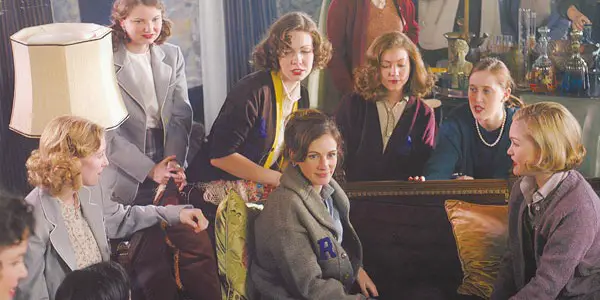
Character Strengths and Virtues: wisdom, creativity, love of learning.
Themes: creative teacher connects with kids and helps them move from the monotony of homework to higher levels of purpose and meaning in life.
Silkwood (1983)
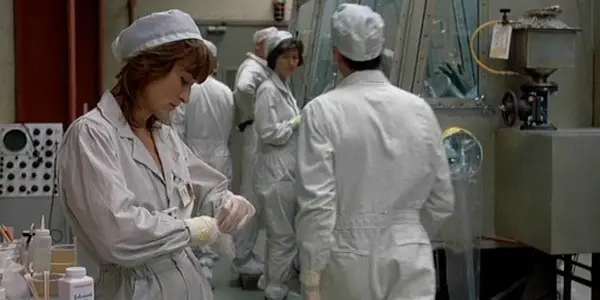
Character Strengths and Virtues: honesty, courage.
Themes: a woman working at a nuclear power plant blows the whistle on dangerous practices at work, dealing with narcissists and Machiavellians.
Truth (2015)

Character Strengths and Virtues: perseverance, courage, honesty, teamwork, valor.
Themes: journalists investigate President George W. Bush, media, dealing with corporations and power.
Of the half million feature films in existence around the world, how many other inspirational films can you think of where “career as a calling” is the main theme for a woman protagonist? Do you think the lack of parity between male and female screenwriters and film directors has an impact on how women and their careers are portrayed on screen? Do our films influence or merely mirror culture?
Please share your thoughts in the comments!
Positive Psychology & Film Series

Positive Psychology And Film
You can improve your life by paying attention to how films use characters and themes to explore human values, virtues, and character strengths.

Positive Psychology & Film: Love
“Human beings are starved for love.” – Erich Fromm This article is part of a series. Find the first part here.
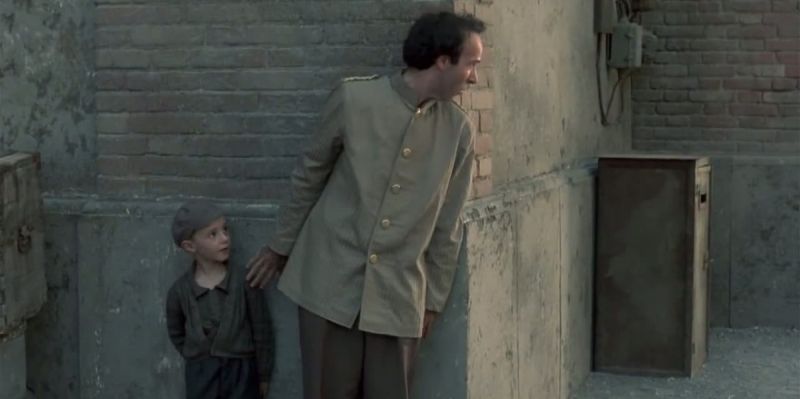
LIFE IS BEAUTIFUL: Through The Lens Of Positive Psychology
In this part of Positive Psychology & Film, Laurie Agard interprets Life Is Beautiful, the inspiring and gut-wrenching Italian war film.
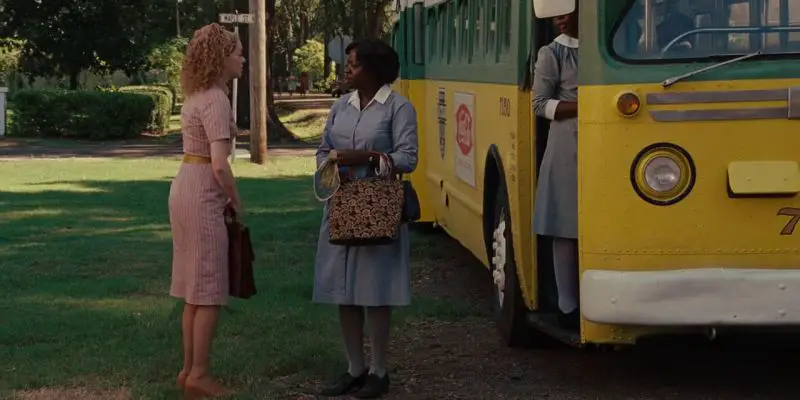
Positive Psychology & Film: Films Featuring Ethnic Minorities
It’s critical that media show that all people belong. However, very few films in the United States are made by and about ethnic minorities.
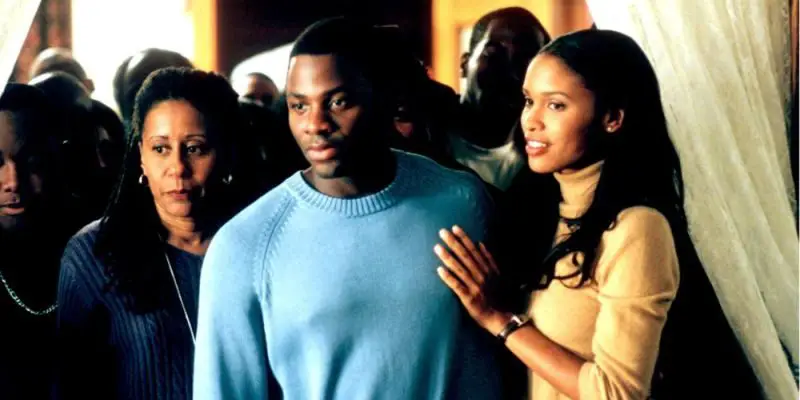
Positive Psychology & Film: Atypical Dating Scripts
Films and culture provide us with scripts that help us make sense of dating and sexuality. Unfortunately, many of the scripts are outdated.
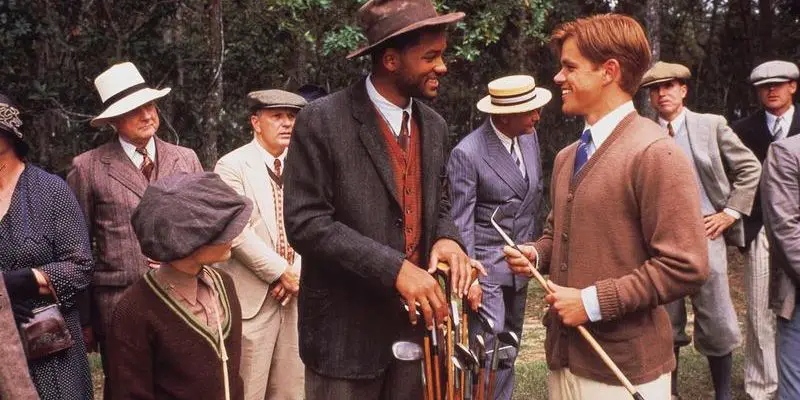
Positive Psychology & Film: Flow
“Inside each and every one of us is one true authentic swing … Somethin’ we was born with … Somethin’ that’s ours and ours alone …

Positive Psychology & Film: Parenting With Children’s Films
“Interest can produce learning on a scale compared to fear as a nuclear explosion to a firecracker.” Stanley Kubrick on the importance and power of curiosity. As educators and parents we want to to care for, nurture, mentor, socialize, and provide for our children to the best of our ability.

SILVER SKIES: A Positive Psychology Film Analysis
Silver Skies shows us how full of love, passion, friendship and fun the lives of the elderly are, and how we can learn from this depiction.

WHILE TIME STANDS STILL: A Positive Psychology Film Review
Elena Miliaresis’ documentary While Time Stands Still tells the story of the hardships of military families – Laurie Agard considers the psychological aspects.
Does content like this matter to you?
Become a Member and support film journalism. Unlock access to all of Film Inquiry`s great articles. Join a community of like-minded readers who are passionate about cinema - get access to our private members Network, give back to independent filmmakers, and more.
Laurie Agard studied Psychology and Writing in graduate school after becoming a Director member of both the Directors Guild of America and the Academy of the Television Arts and Sciences. She associate produced ABC’s Secret Millionaire and wrote, directed, and produced two independent films that premiered on HBO, ABC Family, we TV, as well as networks such as Fox Latin America, Sky TV, Starz, Showtime, and Encore in 45 territories around the world. Her films have received New Comer of the Year awards and Best Children's Feature awards from prestigious organizations such as Kids First!, Hollywood Youth in Film, and the New York Film and Television Festival. She co-directed the Directors Guild of America’s first ever tribute film for and about its female members.












